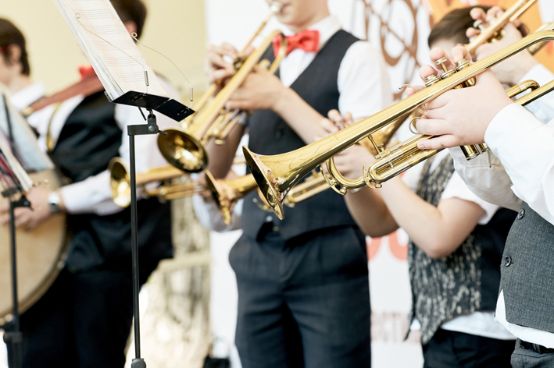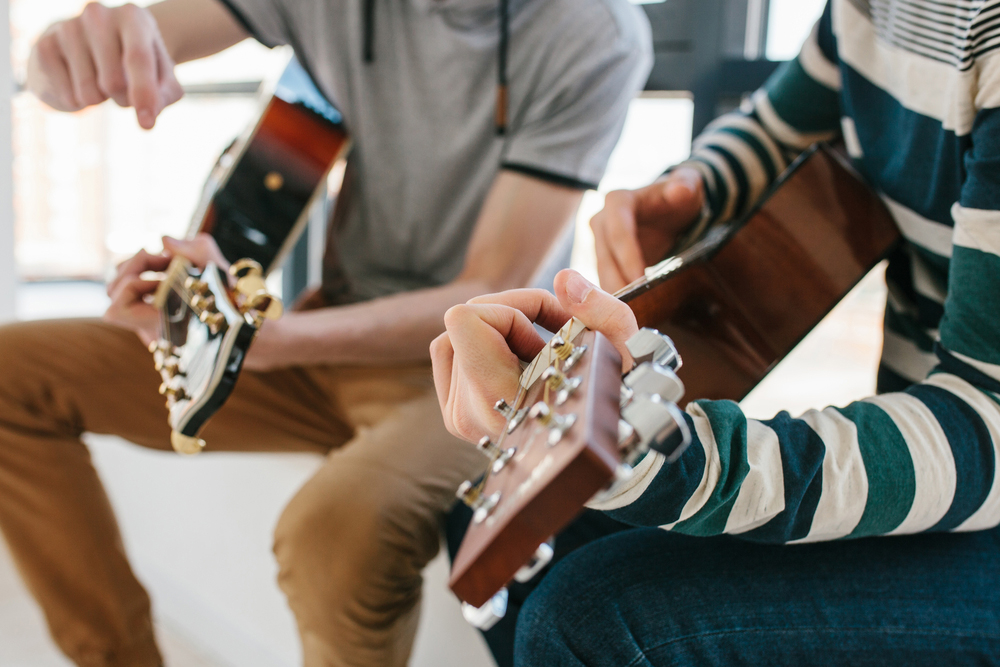Long-term effects of music school lessons
Many former music students are no longer musically active as adults. So are instrumental and vocal lessons that aim to reach as many children and young people as possible a sustainable investment in education?

The report by the Federal Statistical Office on the Cultural behavior in Switzerland (An in-depth analysis - 2008 surveyNeuchâtel 2011) states: "In Switzerland, one in five people plays a musical instrument" and adds that almost half of the Swiss population (47 %) have completed at least one year of non-professional music training. This means that around 43 % of former music students go on to continue making music.
However, the investment of public funds cannot be justified by the musical activity in adulthood alone, but primarily by the gain in musicality and culture. If former pupils listen to music more frequently and consciously, they contribute to the preservation and further development of the musical tradition and its dissemination.
The CAS study (Lucerne University of Applied Sciences and Arts - Music) Long-term effects of instrumental and vocal teaching at music schools examined the sustainability of music lessons using a sample of people who were enrolled at the Olten Music School or were members of the youth music program in the 2004/2005 school year. A total of 99 out of 491 people invited took part in the survey.
Compared to the above-mentioned federal statistics on cultural behavior in Switzerland, 63 % of the former students are still musically active today. It is also noteworthy that 8 % of the people who took part in the survey earn their living from music today. However, it was mainly people interested in music who took part in the survey.
Making music with friends makes all the difference
Of the participants, 80 % were members of an ensemble in the 2004/2005 school year; most of them (66 %) played in an ensemble at music school or in youth music, the rest with friends or family.
Ensemble activity at music school is not in itself an indicator of later music-making, alone or with others. However, people who have already made music privately with friends and family members at school are very likely to continue doing so as adults, because making music with friends has a special intrinsic motivation that continues into adulthood. This is not an argument against promoting ensembles at the music school itself, but the creation of infrastructure (rehearsal rooms) or performance opportunities for private bands and ensembles should also increase the sustainability of music lessons.
Music lessons as part of education are very popular with the participants: 90 % stated that they would like their own children to take lessons at music school if the opportunity arose: a strong vote for its importance.
According to the participants in the study, the benefits of music lessons are not limited to musical skills: The acquisition of discipline and concentration was mentioned almost as frequently as the learning of practical music skills and music theory knowledge. In addition, they described musical and cultural education, performance skills and the ability to focus as important contributions of instrumental lessons to their personal development.








